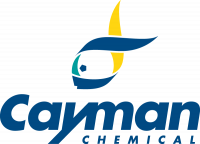Cookie preferences
This website uses cookies, which are necessary for the technical operation of the website and are always set. Other cookies, which increase the comfort when using this website, are used for direct advertising or to facilitate interaction with other websites and social networks, are only set with your consent.
Configuration
Technically required
These cookies are necessary for the basic functions of the shop.
"Allow all cookies" cookie
"Decline all cookies" cookie
CSRF token
Cookie preferences
Currency change
Customer-specific caching
FACT-Finder tracking
Individual prices
Selected shop
Session
Comfort functions
These cookies are used to make the shopping experience even more appealing, for example for the recognition of the visitor.
Note
Show the facebook fanpage in the right blod sidebar
Statistics & Tracking
Affiliate program
Conversion and usertracking via Google Tag Manager
Track device being used

| Item number | Size | Datasheet | Manual | SDS | Delivery time | Quantity | Price |
|---|---|---|---|---|---|---|---|
| Cay19546-50 | 50 µg | - |
6 - 10 business days* |
608.00€
|
If you have any questions, please use our Contact Form.
You can also order by e-mail: info@biomol.com
Larger quantity required? Request bulk
You can also order by e-mail: info@biomol.com
Larger quantity required? Request bulk
Pertussis toxin (islet-activating protein) is a toxin, first isolated from B. pertussis, that is... more
Product information "Pertussis Toxin (islet-activating protein)"
Pertussis toxin (islet-activating protein) is a toxin, first isolated from B. pertussis, that is used to study G protein-coupled receptor signaling in cells and experimental autoimmune encephalomyelitis (EAE) in animals. Pertussis toxin catalyzes the transfer of the ADP-ribose moiety of NAD to the alpha subunits of heterotrimeric Gi/o proteins, resulting in the receptors being uncoupled from Gi/o proteins. Pertussis toxin is also used as an adjuvant, given with specific antigens, to immunize animals and induce EAE, an animal model of multiple sclerosis. Pertussis toxin was first described as an islet-activating protein because it caused a sustained potentiation of the secretory response of pancreatic islet cells to various stimuli that stimulate Gi-linked alpha-adrenergic receptors.CAS Number: 70323-44-3. Purity: >90% estimated by SDS-PAGE. Formulation: (Request formulation change), Each vial, when reconstituted to 500 µl with water, contains 50 µg of pertussis toxin in in 0.01 M sodium phosphate, 0.05 M sodium chloride, pH 7.0. Solubility: Water: soluble.
| Supplier: | Cayman Chemical |
| Supplier-Nr: | 19546 |
Properties
| Application: | cAMP concentration booster |
| Conjugate: | No |
| Purity: | >90% estimated by SDS-PAGE |
| Format: | Solid |
Database Information
| CAS : | 70323-44-3| Matching products |
| KEGG ID : | K11023 | Matching products |
| UniProt ID : | P04977 | Matching products |
| Gene ID : | GeneID 2665068 | Matching products |
Handling & Safety
| Storage: | +4°C |
| Shipping: | +20°C (International: +4°C) |
| Signal Word: | Warning |
| GHS Hazard Pictograms: |
|
| H Phrases: | H315, H335, H320 |
| P Phrases: | P261, P264, P271, P280, P312, P321, P302+P352, P304+P340, P305+P351+P338, P332+P313, P337+P313, P362+P364, P405, P403+P233, P501 |
Caution
Our products are for laboratory research use only: Not for administration to humans!
Our products are for laboratory research use only: Not for administration to humans!
Information about the product reference will follow.
more
You will get a certificate here
Viewed

